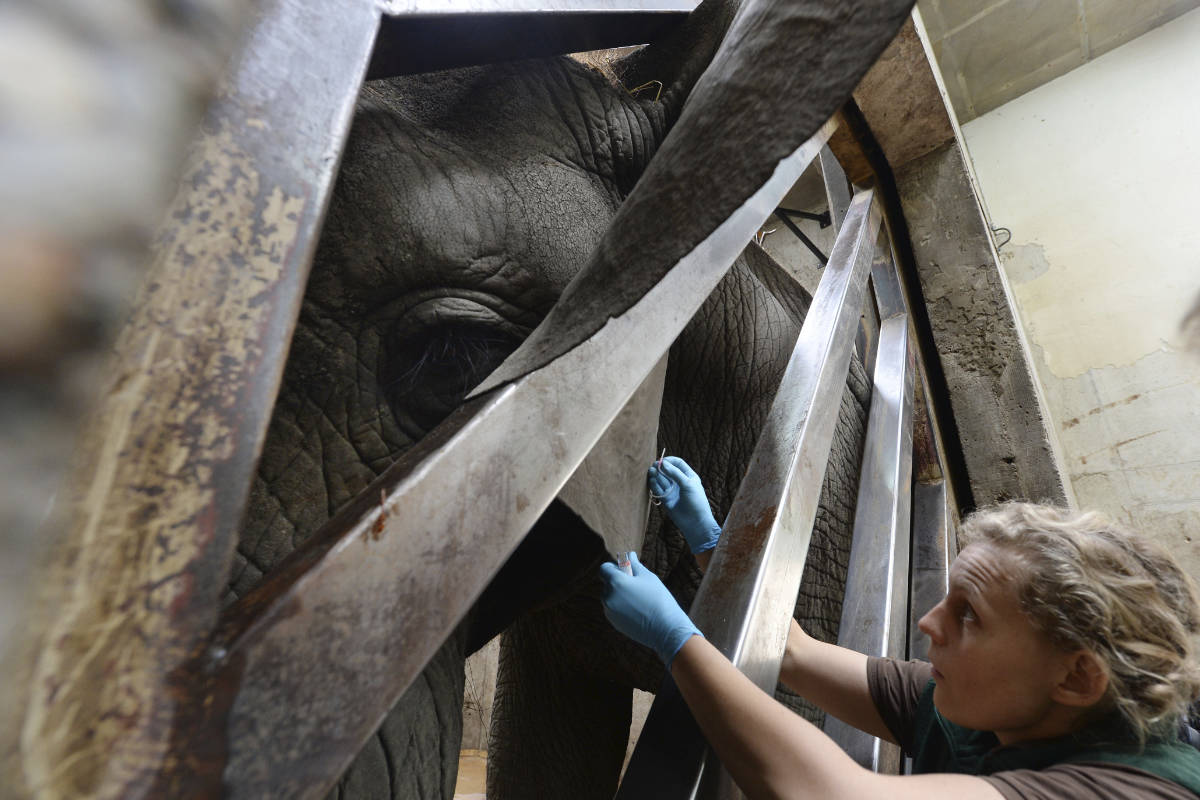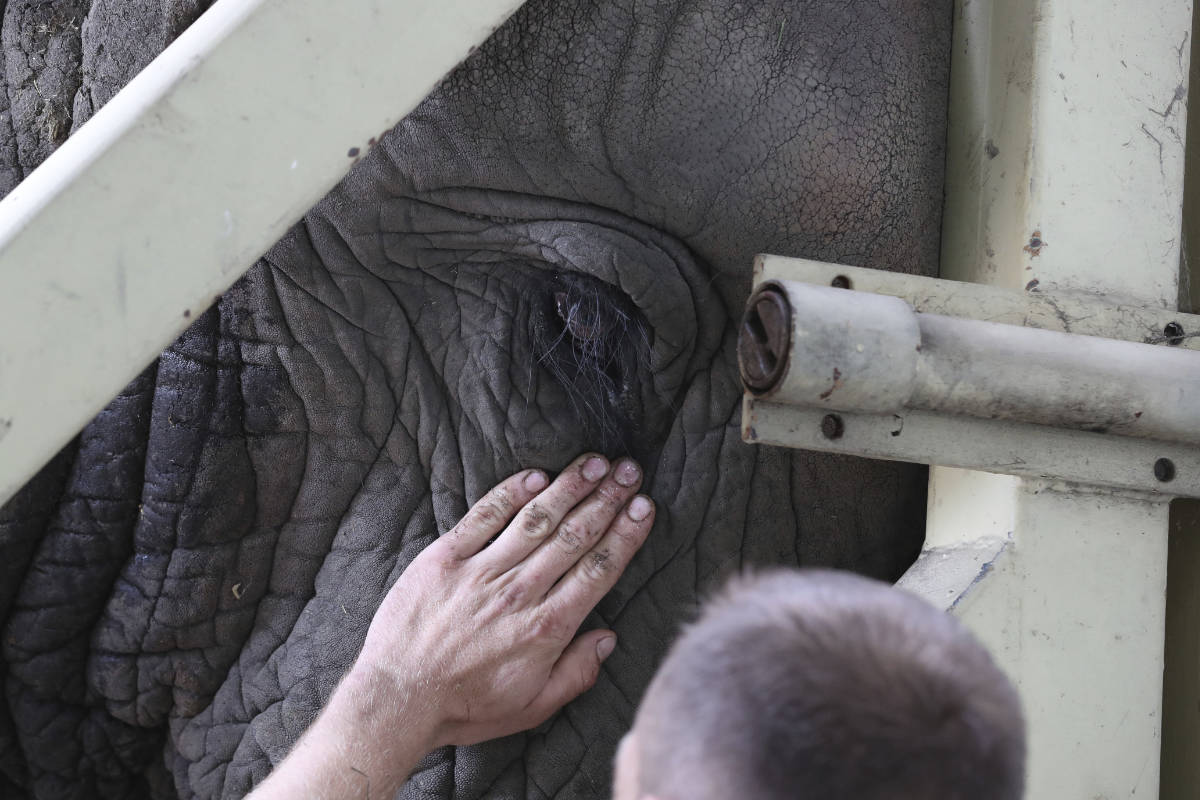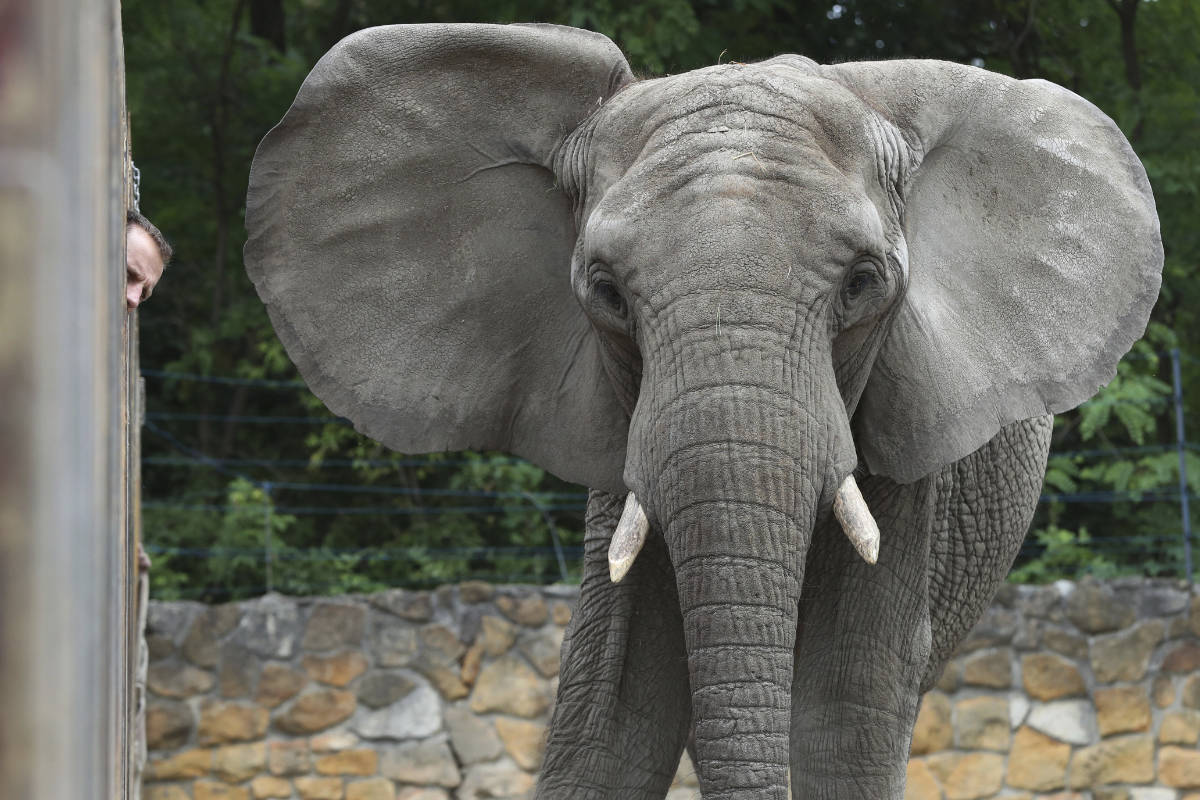Scientists at Warsaw’s zoo are defending an experiment to test CBD oil on a small herd of stressed-out elephants, saying hemp oil is not a drug and they would never apply anything dangerous to animals.
Scientists have been taking blood, saliva and other samples from the zoo’s three elephants in recent days to prepare to test whether giving them hemp oil can reduce their stress.
A closer look: Photo essay from the Warsaw Zoo’s elephant enclosure
Dr. Agnieszka Czujkowska, a zoo veterinarian, said hemp oil, also known as CBD, or cannabidiol oil, has been shown to reduce anxiety and stress in other animals, including horses and dogs.
The zoo’s experts thought it made sense to see if could also help their animals, including giraffes, rhinos and polar bears. They decided, however, to start their tests on their three African elephants, who have undergone a period of stress following the death in March of an older female, Erna.
“Basically stress is everywhere and we don’t know what’s going to happen in the future,” she said. “Maybe one of the elephants will be pregnant, maybe there will be some kind of injury sometimes. They can break a tusk — it happens. They can get sick for no reason,” she said.
“And we want to have something that will let them smoothly go tough this period of time.”
While the study had also drawn some sensationalist headlines, Czujkowska explained that hemp oil is not a drug, and despite many people’s associations, it is completely different from marijuana because it does not contain THC, the main psychoactive compound in cannabis.
If the study works as hoped, the oil will merely “calm them down a little bit,” and have anti-inflammatory and other benefits, she told The Associated Press on Friday as the animals ate large branches behind her.
“It will work in different ways but it will not give them any high,” she said. “Hemp oil is not a drug.”
“We would never apply anything that is dangerous to animals,” she said.
Around noon on Friday, she and zookeepers brought the sole male elephant, Leon, into a pen and from outside a protective cage they reached in to draw blood and take saliva samples. He obeyed his keepers as they ordered him to raise his trunk so they could take saliva swabs.
Some 300 samples — of blood, saliva, urine and feces — have been taken over the past week in preparation.
Among other things, the scientists are measuring the elephants’ levels of cortisol, the stress hormone. If all goes as planned, they will be able to start administering drops of hemp oil in a few weeks.
But it is expected to take from a year to two years to have results from the scientific study, Czujkowska said.
After Erna’s death, the remaining two females have struggled to establish a hierarchy.
The 23-year-old Fryderyka, also known as Fredzia, has long tried to control the other female, Buba, also 23, but was kept in check to some degree by Erna, who helped to resolve conflicts.
Since Erna’s death, Fredzia in particular has shown greater levels of stress as she tries to control Buba’s eating and other behaviours.
Fredzia “is stressed because she is the boss of the herd. It’s like having a boss, ten employees, and suddenly eight are laid off, and this boss has nothing to do,” said Patryk Pycinski, a mammal expert at the zoo who is involved in the elephant study.
He said the zoo’s scientists hope that reducing stress levels will also allow Fredzia to conceive. He said if she has her own own offspring to guide, it could reducing her impulse to dominate Buba — and further reduce tensions in the group.
— Associated Press with Paul Bucci



